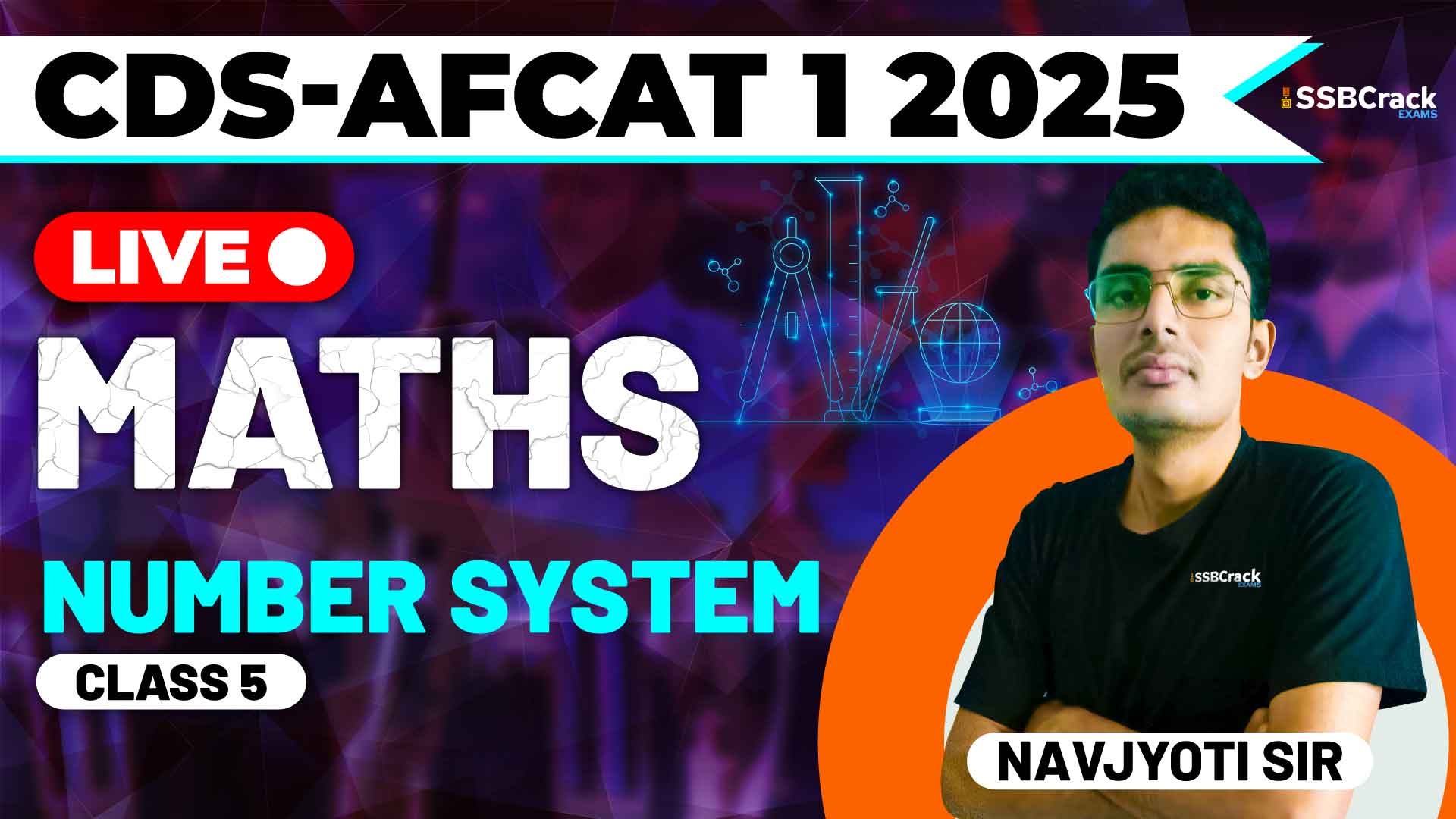A recent class conducted on the Number System for the Combined Defence Services (CDS) and Air Force Common Admission Test (AFCAT) exams was focused on solving multiple-choice questions (MCQs) based on the key sub-topics of the number system. These concepts are essential not only for the exams but also for building a strong foundation in quantitative aptitude. This blog will provide an overview of the discussed topics, preparation strategies, and tips for acing the number system questions in competitive exams like CDS and AFCAT.
Key Sub-Topics in the Number System
The number system is a vast topic, covering everything from basic definitions to advanced properties. Some of the sub-topics that were discussed in the class and frequently appear in MCQs include:
- Natural, Whole, and Integer Numbers: Understanding the basic types of numbers is crucial. Natural numbers (starting from 1), whole numbers (including 0), and integers (which include both positive and negative numbers) form the basis of arithmetic operations in most problems.
- Odd and Even Numbers: These basic classifications of numbers help solve a variety of problems, including those involving divisibility, factorization, and pattern recognition.
- Prime and Composite Numbers: A prime number has no divisors other than 1 and itself, while a composite number has more than two factors. Questions on prime factorization and recognizing primes are commonly asked.
- Rational and Irrational Numbers: Rational numbers can be expressed as a ratio of two integers, whereas irrational numbers cannot. Understanding how to identify and work with these numbers is essential for solving algebraic and arithmetic questions.
- Divisibility Rules: Divisibility rules for numbers like 2, 3, 5, and 10 are essential tools for solving questions quickly. Knowing these rules enables you to eliminate incorrect answer choices swiftly, especially in questions related to factorization and multiples.
- LCM and HCF: The Least Common Multiple (LCM) and Highest Common Factor (HCF) are key concepts in solving problems related to ratios, time and work, and simplifying fractions. LCM is used to find common multiples, while HCF helps find common factors.
- Surds and Indices: Questions related to surds (roots of numbers that cannot be simplified into rational numbers) and indices (powers or exponents) are frequent in MCQs. Simplifying expressions involving surds or indices is crucial for solving problems efficiently.
- Converting Decimals to Fractions: Repeating or terminating decimal numbers often appear in fraction-related questions. Understanding how to convert a repeating decimal into a fraction or vice versa is important for accuracy in questions.
Strategies to Master the Number System
To excel in the number system questions in CDS and AFCAT exams, you need a well-rounded strategy that focuses on understanding the concepts, practicing regularly, and improving speed and accuracy. Below are some strategies to help you prepare:
1. Grasp the Fundamentals
Before diving into practice questions, ensure that you have a thorough understanding of the core concepts such as prime numbers, divisibility rules, LCM, HCF, surds, and indices. Go over the definitions and properties of these sub-topics multiple times until they become second nature to you. Without a solid grasp of the basics, tackling MCQs becomes a guessing game rather than a test of knowledge.
2. Practice, Practice, Practice
Once you have a solid understanding of the concepts, practice is key. Work on MCQs from previous years’ CDS and AFCAT papers as well as mock tests. Practicing problems helps reinforce what you have learned and enables you to recognize patterns in how questions are framed.
3. Time Management
Competitive exams are as much about speed as they are about knowledge. While practicing, time yourself. Learn how to quickly eliminate incorrect options and how to solve problems efficiently without getting bogged down in lengthy calculations. For instance, knowing divisibility rules and prime factorization shortcuts will help you solve problems in seconds.
4. Memorize Shortcuts and Tricks
The number system involves several handy shortcuts, such as divisibility tests and prime factorization methods. Memorizing these can save valuable time during the exam. For example, knowing how to quickly find the LCM and HCF using prime factorization or applying basic divisibility rules (like dividing by 2, 3, or 5) will speed up your problem-solving.
5. Identify and Work on Weak Areas
After practicing MCQs, review your mistakes and identify which areas need improvement. If you are struggling with LCM and HCF questions, dedicate more time to understanding these topics and solving related problems. Similarly, if surds and indices are challenging, work on simplifying expressions and solving equations involving these concepts.
6. Simulate Exam Conditions
In addition to solving practice questions, take full-length mock exams under timed conditions. This will help you build exam stamina and get used to answering questions under pressure. Try to simulate the real exam environment by avoiding distractions and timing yourself strictly.
7. Solve Previous Year Papers
CDS and AFCAT exams often repeat question patterns. Solving previous years’ papers is a great way to familiarize yourself with the types of questions that are asked in the number system section. Pay attention to the distribution of topics and the difficulty level of the questions.
Common Mistakes to Avoid
While preparing for the number system, students often make a few common mistakes that can be avoided with the right approach:
- Skipping the Basics: Some students jump directly into complex problems without thoroughly understanding the fundamental concepts. This leads to mistakes in solving even simple questions.
- Neglecting Time Management: Solving number system questions quickly is essential for success in competitive exams. Many students spend too much time on one question, leaving less time for others.
- Over-Reliance on Formulas: While formulas are useful, understanding the logic behind them is equally important. Instead of memorizing formulas blindly, focus on understanding how they are derived and how they apply to different problems.
- Not Reviewing Mistakes: After solving practice questions, it’s crucial to review your errors and learn from them. Simply solving problems without reflection does not lead to improvement.
Conclusion
The number system is an integral part of the CDS and AFCAT exams, and mastering it requires a combination of conceptual understanding, regular practice, and strategic time management. By focusing on topics like prime numbers, LCM, HCF, surds, indices, and divisibility rules, and practicing through MCQs, you can significantly improve your chances of success.
Remember, practice is key to mastering any topic, and the number system is no exception. With the right approach and consistent effort, you can become proficient in solving number system questions, boosting your overall score in the CDS and AFCAT exams.
Start your preparation early, focus on mastering the concepts, and practice regularly. With dedication and smart strategies, you’ll be well on your way to cracking the number system section in the exams.







